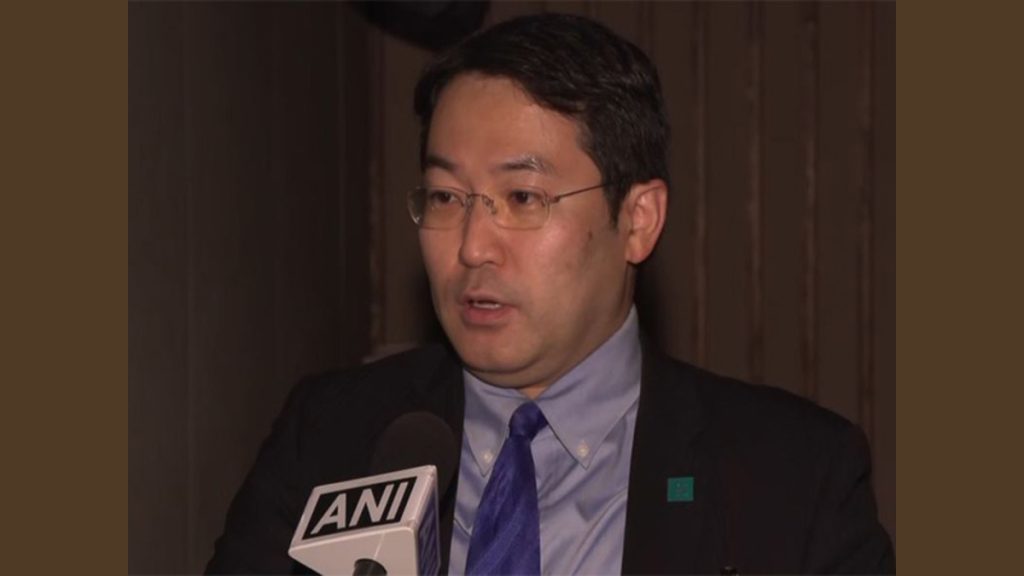In a significant endorsement of India’s counter-terror efforts, Japanese strategic affairs expert Dr. Satoru Nagao, a non-resident fellow at the Hudson Institute, has strongly backed India’s Operation Sindoor, calling it a “responsible and proper response” to state-sponsored terrorism. In a detailed interview with ANI, Nagao also denounced Pakistan’s long-standing support for terrorism, warning that it poses not just a regional threat but a global security risk.
Calling the April 22 Pahalgam terror attack—in which 26 civilians were killed—“terrible”, Nagao expressed emotional solidarity with India and emphasized the need for global awareness about Pakistan’s complicity in terrorism.
“India has suffered for decades due to Pakistan-sponsored terrorism. What happened in Pahalgam moved many in Japan. It’s time we tell Pakistan that this support for terrorists is not just wrong—it’s suicidal. No one can control terrorists forever,” Nagao said.
He warned that Pakistan’s tolerance and support for militant groups could eventually backfire on its own security and stability.
Dr. Nagao praised the May 7 Operation Sindoor, in which the Indian Armed Forces targeted nine major terrorist sites in Pakistan and Pakistan-occupied Jammu and Kashmir (PoJK), eliminating over 100 terrorists linked to JeM, LeT, and Hizbul Mujahideen.
“India’s action was measured and focused only on terrorist infrastructure. It was a clear message and a rightful punishment. This is how responsible nations respond to terrorism,” Nagao said, lauding India for avoiding civilian targets and carrying out the operation with “careful military precision.”
Nagao stressed that India needs to amplify its narrative globally, especially in East Asia, where awareness about South Asian security issues remains limited.
“The world often views this as a regional issue. But terrorism is not confined to borders. Japan and other nations must understand that supporting terrorism anywhere is a global threat,” he warned.
He appreciated the Indian parliamentary delegation’s visit to Japan, calling it a “clever and effective” move to explain India’s position firsthand. The delegation, led by MP Sanjay Kumar Jha, is also scheduled to visit Indonesia, Malaysia, South Korea, and Singapore, aiming to brief international stakeholders on India’s response to the Pahalgam attack and its larger anti-terrorism strategy.
Professor Hirose Hiromi, a political science expert from Kindai University, echoed the concern over the Pahalgam attack, condemning it as a brutal act against innocent civilians with no connection to religious or international disputes. He noted that Japan must seek a deeper understanding of the root causes of such violence.
While the global community has historically been reluctant to hold Pakistan accountable, Dr. Nagao believes sentiment is shifting.
“It’s tragic that the world still treats this as a regional conflict. But slowly, people are beginning to recognize that Pakistan’s support for terror groups is a real, global threat. It’s time for consistent and unified pressure,” he said.
Dr. Nagao concluded by characterizing India as both a victim of terrorism and a strong, responsible democracy capable of dealing with threats decisively.
“India’s response under Operation Sindoor sets a global example of how to confront terrorism firmly, yet responsibly. This is not just India’s fight—this is a fight the world should join.”
Operation Sindoor, launched in the wake of one of the deadliest terror attacks in recent years, has now drawn not just domestic support but international validation from strategic circles. As India positions itself as a global leader in counter-terror strategy, voices like Dr. Nagao’s add credibility and urgency to the message: State-sponsored terrorism will not go unanswered.
